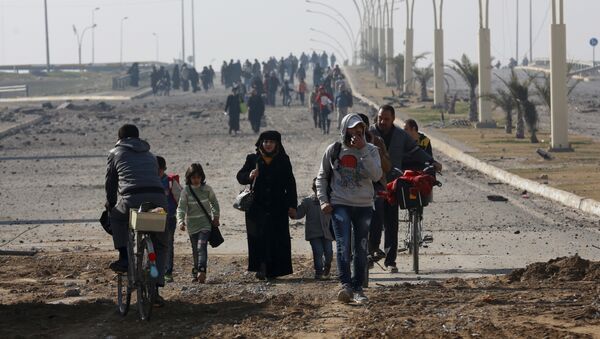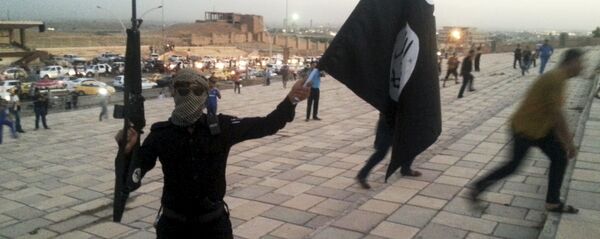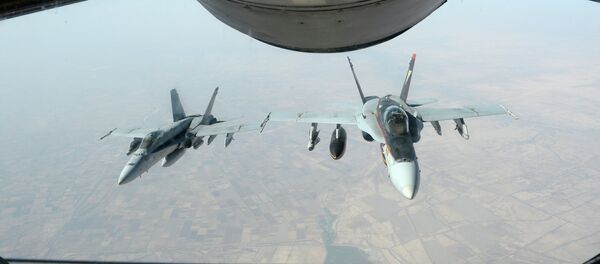The al-Fazaa rescue team was created in Mosul during October last year, after it had become clear the local and central government could not cope with the settlement of all refugees who had been displaced as a result of the operation against Daesh.
“We were the first team of volunteers who came to help people in the refugee camps after Daesh captured Mosul. We did a great job: collected money and aid, then transported and distributed it all between the refugees,” Khatib told Sputnik Arabic.
“At first we only worked in camps but as more villages and towns were liberated our scope of activities has grown and is now divided into four parts: the first is gathering and assisting the refugees from villages to the north of Mosul, the second and third tasks are provision of humanitarian and medical aid in camps, the fourth task is a special program to comfort people in the areas liberated from Daesh.
He further said that right now they are constantly helping in Khazer, Hassan Shami and Debaga camp.
“Someone brings medications, someone else get food, others bring warm clothes and blankets, ovens for bread, water and so on. Together with other organizations we arranged a Christmas holiday for the refugees,” the founder said.
Talking about the dangers that Khatib and his team have faced in their work, he told Sputnik that they were attacked by Daesh when they first entered the liberated districts of eastern Mosul. Four volunteers were killed and 20 more were injured.
“The wounded are sent to Kurdistan. There are seven hospitals over there, three are public and four are private. We have our people there who treat patients,” Khatib said.
Sometimes, though rarely, in one case out of a hundred, the civilians are subjected to air strikes by the international coalition. The team sends them to the hospital and does everything that is necessary for a successful treatment.
“We have already helped 250 wounded in Mosul. On our shoulders we bear all transportation, medication, clothing, and extra costs such as personal toiletries etc..,” Khatib said.
He further said that in the eastern Mosul neighborhood al of Zahraa, his team has opened a center for blood transfusion. At first it was very small, but after some hard work and appeal to donors via radio and through local authorities, it has become the largest blood bank in Mosul.
“130 doctors work tirelessly 24 hours a day. The wounded ones are the first to be brought in to the bank,” Khatib said.
They are constructing water wells in the liberated areas for refugees to have access to clean drinking water. They are also providing people with household power generators. The UN has delivered large water canisters for the refugees.
“More than 300 people are registered on our official list of volunteers. In addition, many activists in Mosul and its suburbs are constantly helping us and participating in our projects,” Khatib concluded.
Mosul, Iraq’s second largest city was captured by Daesh in June 2014. At least 750,000 civilians are living in Mosul’s western part under Daesh control, according to UN estimates.
Iraqi and US-led coalition forces liberated the eastern part of the city in late January 2017.
Never miss a story again — sign up to our Telegram channel and we'll keep you up to speed!






